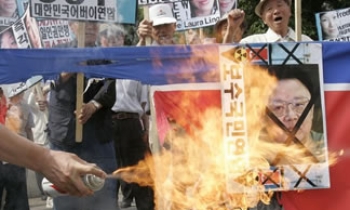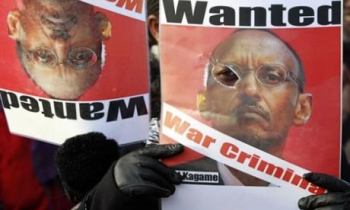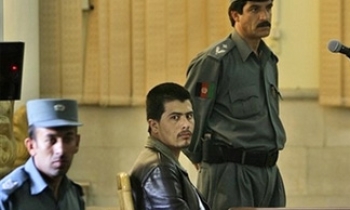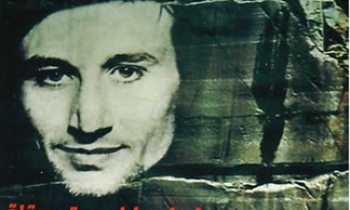The ongoing violence in Sri Lanka is taking its toll on press freedom and freedom of expression.
Journalists are directly in the line of fire; their safety and security have been compromised; some have even been forced to flee for their own safety.
At the recent general meeting in Montevideo, Uruguay, the International Freedom of Expression eXchange (IFEX) appealed to the government, the Liberation Tigers of Tamil Eelam (LTTE), and all paramilitary and armed groups to support press freedom and the freedom of expression in a meaningful and sincere manner.
Human rights and media freedom activists have been the target of death threats, physical harm and subject to a language of hate and harm by government ministers, paramilitary groups and LTTE.
Apart from physical threats, the Sri Lankan press has to deal with the interference in editorial independence, including the use of economic or legal sanctions, such as restrictions on newsprint, the indiscriminate use of search and seizure powers by the tax authorities or the freezing of assets, and even in the publication of a newspaper.
Self-censorship is rife. Tamilnet, a news website with a predominant Tamil nationalist perspective, is blocked by all major internet service providers (ISPs) in Sri Lanka on the orders of the government. Direct calls to newsrooms and editorial offices, to influence media coverage and editorial lines have become order of the day.
The affront to free press freedom and freedom of expression follows a series of exceptional statements by a number of high officials in government, including senior ministers and the Secretary of Defence, who have grossly undermined press freedom, severely curtailed free speech, and stifled investigative reporting on defence-related matters and high-level corruption.
IFEX member Free Media Movement (FMM) based in Colombo, noted that the media in Sri Lanka is under incredible pressure to supinely conform and comply with the current government's propaganda on conflict and peace. Any journalist who questions or critiques this official line is immediately the target of hate speech and rapid public condemnation.
According to FMM, the government is preparing to promulgate new policy, called Draft Emergency Regulations to impose a general prohibition on investigative reporting and media coverage in respect of issues relating to defence procurement.
The Media Centre for National Security (MCNS) has directed the press to refrain from publishing any reports that would undermine the efforts of the armed forces. The Director-General of the MCNS, Lakshman Hulugalle, told the media, "We consider anyone who criticises the defence forces to be a traitor to the nation as such people undermine the lives of armed forces personnel," as reported in the Daily Mirror newspaper.
Recently, the Sri Lankan Ministry of Defence website published a report containing unsubstantiated allegations that defence analyst and senior journalist Iqbal Athas was involved in psychological operations of the [rebel army] LTTE. The report was followed by pronouncement by government military spokesperson Brigadier Udaya Nanayakakara that Athas' writing constituted "a clear support to terrorism" and that the "people should consider his articles as treacherous acts."
These were the clear signs of retributive action being taken against Athas for reporting on allegations of malpractice and possible corruption in the procurement of military aircrafts. The report has not been retracted to date despite repeated complaints by various media organisations, FMM said.
In an already oppressive media environment in which both existing emergency regulations and the general culture of impunity make the exercise of media freedom and right to free speech difficult and physically dangerous, enacting further repressive measures seriously questions the government's commitment to good governance, transparency and accountability, FMM pointed out.
Such measures are not only inconsistent with constitutionally protected fundamental rights in Sri Lanka, but also represent the clear violation of international standards and best practice relating to permissible limitations on freedom of speech during a time of conflict, acording to FMM. Nothing under international law and practice permits the restriction of media freedom on the grounds of national security if the subject matter of the inquiry relates to allegations of bribery, corruption or malpractice.
The opposite is the case under internationally recognised standards, whereby even legitimate restrictions on grounds of national security would have to be lifted if allegations of serious corruption and malpractice are reported in the media, FMM said. The very legitimacy of the Sri Lankan government’s policy of war against terrorism would be seriously undermined through the adoption of such measures, which are ethically and legally indefensible.
There is an immediate need to amend or revoke recent amendments in Sri Lankan legislation, regulations and powers, particularly the emergency regulations of August 2005, the Prevention of Terrorism and Specified Terrorist Activities Regulations of December 2006, the Official Secrets Act, Press Council Laws and broadcasting laws that fail to meet international standards on press freedom and freedom of expression.









